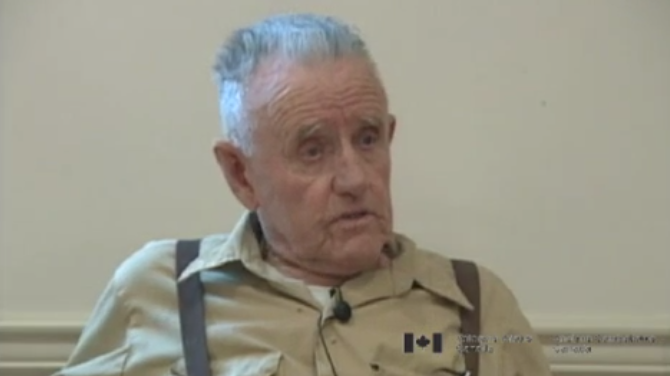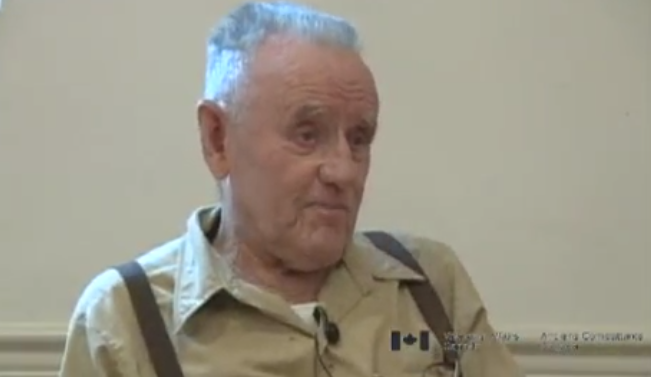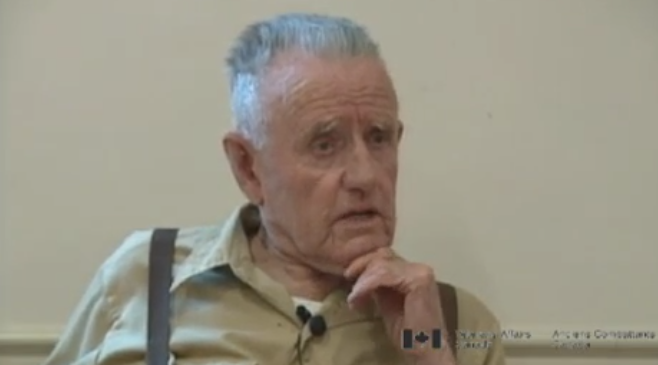Training
Heroes Remember
Training
Transcript
Description
Ronald Allingham
Mr. Ronald John Allingham was born July 16, 192 in Vernon, British Columbia. He was the eldest child with 3 brothers. With his father being an orchard grower, Mr. Allingham spent most of his young life working in the orchard; reaching a grade 8 level of education. Growing up during the “Dirty 30's” Mr. Allingham understood the significance of war being declared and on August 1, 1940 made the decision to join the Army and enlisted as part of the British Columbia Dragoons, B Squadron. After receiving basic training in Vernon, Mr. Allingham travelled to Duncan, BC to obtain more training, however, had a setback and took very ill. As health improved, Mr. Allingham had missed his opportunity for service with the army and was made part of the artillery under the 13th Field 78th Battery; a choice that later proved to be very satisfying. Mr. Allingham went overseas and in 1945 discharged from the service.
Meta Data
- Medium:
- Video
- Owner:
- Veterans Affairs Canada
- Duration:
- 1:51
- Person Interviewed:
- Ronald Allingham
- War, Conflict or Mission:
- Second World War
- Location/Theatre:
- England
- Branch:
- Army
- Units/Ship:
- Royal Canadian Artillery
- Occupation:
- Driver
Related Videos
- Date modified:





